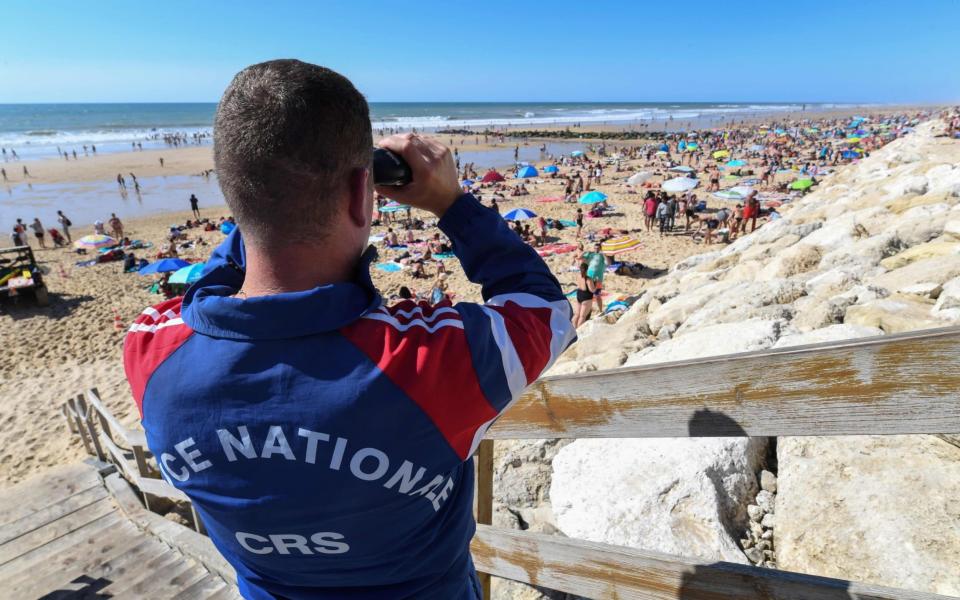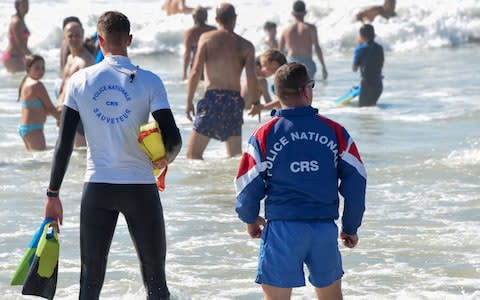French plan to remove police lifeguards from beaches faces fierce opposition from local mayors

A plan to withdraw police officers from lifeguard duty on French beaches is facing fierce opposition by mayors concerned about public safety and terrorism.
For six decades, strapping riot police standing in as lifeguards have been a reassuring presence on French beaches.
But many have been stood down in recent years and the rest are due to be pulled back indefinitely amid Emmanuel Macron's budget cuts.
Many mayors and MPs fear a potential increase in the already high summer average of three drownings a day, blamed on bathing in unsupervised areas and poor swimming skills. They also argue that holidaymakers would be left more vulnerable to troublemakers or terrorists.
After a string of attacks in France, CRS riot police in 2016 began bringing their guns while on lifeguard duty at France’s busiest resorts during les grandes vacances in July and August.

But their numbers have dwindled as successive governments have cut costs, while many have been deployed elsewhere as part of a beefed-up police presence on French streets since the 2015 Paris attacks.
This year only 300 CRS officers served as lifeguards, compared to 720 in 2002 and 500 in 2015. They cost the state an estimated £4 million per year, which is “too expensive”, the French national audit office says.
Gérard Collomb, the interior minister, is planning to end CRS lifeguard duty because “keeping watch over beaches and helping people in difficulty while swimming is not a core CRS mission.”
Daniel Fasquelle, a conservative MP for the Calais area, said: “Removing the CRS would be a considerable loss for the safety of our fellow-citizens and foreign tourists on our beaches because they can supervise swimmers, prevent rowdy behaviour and take action against the threat of a terrorist attack.”
Mr Fasquelle, from the main opposition party, The Republicans, and several local mayors have highlighted the danger of an attack in France similar to the 2015 mass shooting on a Tunisian beach packed with foreign tourists.
The following year police lifeguards in France started carrying automatic pistols in waterproof bags.
The government wants local communities to foot the bill for civilian lifeguards, possibly backed up by municipal police, who are unarmed.
But Mr Fasquelle said: “Safety on the beach and elsewhere is a responsibility of the state, not of local communities.”
Laurent Peyrondet, the centrist mayor of Lacanau, a south-western resort that has four lifeguard towers on its 2.5 mile beach, said the audit office was focussing exclusively on funding. “The audit office should not be determining the future of the CRS lifeguards, whose primary mission is to save bathers from drowning, but also to police the beaches.”
Cyril Lambert, a CRS lifeguard and police union representative, said: “Our presence on beaches is essential given the risk of attacks.”

 Yahoo News
Yahoo News 